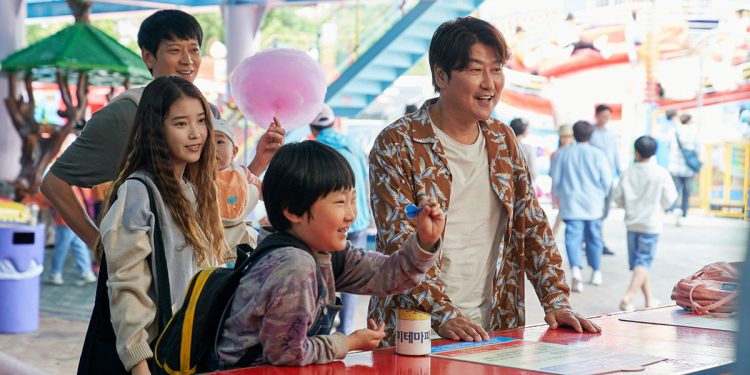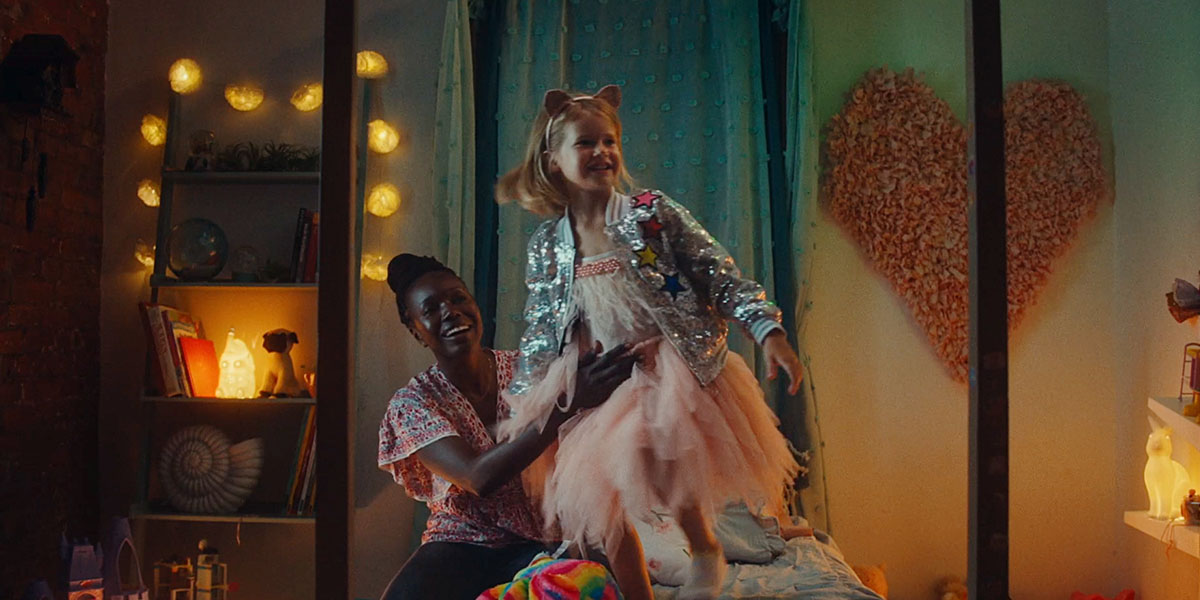The wide range of films screened at the Toronto International Film Festival each year often means that debut filmmakers are sometimes more established ones, sometimes even exploring similar things thematically. Two early showings at this year festival, South Korean master Hirokazu Kore-eda’s “Broker” and American independent filmmaker Nikyatu Jusu’s directorial debut “Nanny,” both feature thoughtful engagements with film and family that find them seeming like connected pieces despite their vast different in locales and approaches.
“Broker” follows Kore-eda’s usually contemplative approach to film, with another large and diffuse ensemble cast. He returns to his Korean language after his most recent French film “The Truth” (which played at TIFF in 2019). The film casts such a wide net, that its plot seems more in line with a heavy thriller than the warm and kind-hearted ensemble film it develops into. “Broker” finds room for romance, comedy and something close to melodrama where the plot might suggest otherwise. Every minor character feels rich enough for their own story. The inciting incident begins when a young woman abandons her baby in a drop-box. Her act is observed by two detectives, who are tailing a pair of baby-snatchers who are foregoing the country’s official adoption policies and selling abandoned babies to families in need. This set-up sounds lurid and terrifying, except everything from the inciting incident to the end of “Broker” unfolds with so much warmth and compassion that at times you forget this is a movie that’s technically about crime, even when higher crimes like murder come to the fore.

Kore-eda’s lingering interest is in children, the world we create for them and the ways that they are fated to pay for the sins of those who came before. But this thesis is not treated with fatalism or anything that resembles pessimism. Instead, Kore-eda invites us into the world of each of the main players. Song Kang-ho and Gang Dong-won play the baby snatchers (Sang-hyeon and Dong-soo), an odd pair of men who would not be out of place in a light-hearted comedy of unfortunate events. Song Kang-ho continues to be one of the finest contemporary actors, for the first quarter of the film functioning as the necessary agent to disrupt our expectations of what someone who smuggles babies looks like. As is typical with Kore-eda, nothing here is what we expect. In a world of awfulness, Kore-eda dares to consider humanity as potentially self-correcting. As the film’s world opens, the detectives who are trailing the case, become more important to the film’s wider net of themes, with then excellent Bae Donna offering a savvy turn that reveals itself to us bit by bit. At his best, Kore-eda’s empathy manifests in a technical awareness of space and architecture that tricks you into thinking it’s emotionally removed but soon reveals itself to be his own kind of approach to empathy. This is not empathy as maudlin, but instead is an introspective gaze that turns his camera into something forever seeking. The editing, similarly seeking, stitches odd moments together in ways that capture the restless anxiety of contemporary lives.
By the middle of the film when the odd couple of thieves, the mother from the opening sequence, the infant child and another older child end up going through the city like a mismatched family, “Broker” reveals an emotional acuity that works well with Kore-eda’s own formal interest in recognising the possibilities of existence in a contemporary world. The film’s coda, emphasising the value of children, never becomes maudlin but feels like a moving celebration of the best of what is possible about the world. Even in a film that hinges on child smuggling.
“Nanny” is a different beast. It is a pseudo-horror film where a Senegalese woman works as a “Nanny” to bring her son to the US with her. The film is less overt at being a horror film and more effective when it is steeped in its social commentary. As Aisha (an excellent Anna Diop) tends to the white child in her care, aware of the racial and class dynamics at play; she thinks of her own son in Senegal who she misses so much. The film’s horror elements, though muted, offer a thoughtful engagement with Senegalese culture with one of its sharpest sequences featuring Leslie Uggams in a brief but searing role. Just as “Broker” feels completely tapped into Korean culture, “Nanny” – despite its American setting – is thoughtful and engaging as a tale of diaspora African.
Jusu’s debut is technically proficient, and the brief dream and horror sequences make me excited to see how she develops this skill. What “Nanny” does so beautifully is finding a way to make the psychosocial displacement of Aisha manifest in ways where the camera emphasises it to wonderful effect. This is not social hectoring without an awareness of form. Instead, “Nanny” unfolds confidently with an awareness of the stakes of its images. So much so that the film’s final reveal, which I am somewhat ambivalent about on a story level, is bolstered by a beautiful sequence of images that centre on Diop’s excellent performance. Like in “Broker”, Jusu is asking us to think of our children – the things we do for them but the things we do to them also. It’s a messaging that feels in line with Kore-eda’s preoccupations in “Broker” and make the two films two early must-sees at the festival so far.
Both films are set to be released worldwide in November this year.
This piece was filed as part of coverage of the 2022 Toronto Film Festival.










